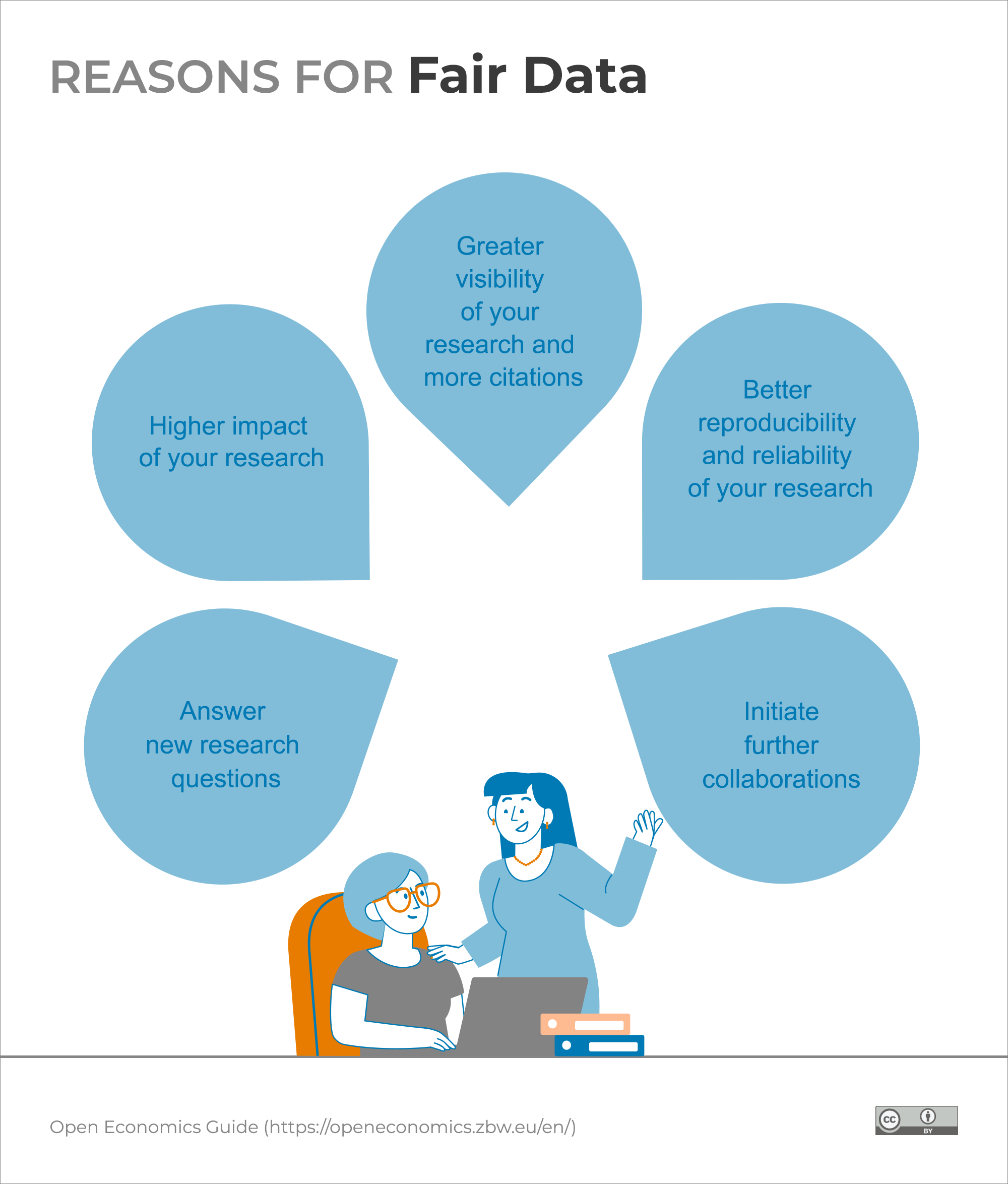Why FAIR Data is Important
FAIR Data is promoted at European level by the GO FAIRInitiative in which also the ZBW is involved. On the one hand, FAIR data go beyond “open data”, because they are not only concerned with the usage rights but also the technical requirements of data provision. On the other hand, FAIR data are not necessarily “open”: they are as open as possible and as closed as necessary.
There are several advantages for your research if you design your data management according to the FAIR principles:
- You raise the impact of your research.
- You raise the visibility of your research and it is cited more often.
- You improve the reproducibility and reliability of your research.
- You contribute to initiating new partnerships.
- You make it possible for new research questions to be answered.

The “FAIR Data principles”, to which many research funders refer, describe fundamental aspects that research data need to fulfil and that need to be supported by corresponding research data infrastructures:
- Findable: Data and their metadata are easy to find, both for people and machines, through a unique and comprehensive description.
- Accessible: The conditions of access for research objects are clear, both for people and for machines.
- Interoperable: Computers can interpret data and their metadata automatically. This ensures exchange with other applications.
- Reusable: The data and metadata are documented according to unique standards so that they are reusable in further research..